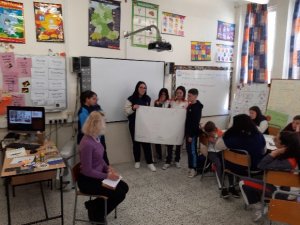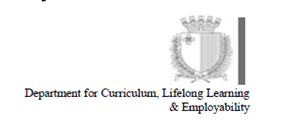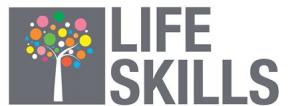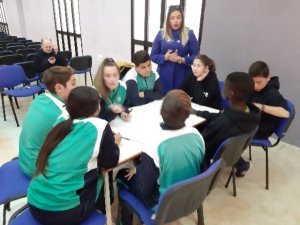One of ĠEMMA’s strategic thrusts is that of working with the Education Division and other partners to inculcate financial capability among children and teenagers so that they understand better how to manage their money to avoid financial difficulty now and in the future is on.






The OECD recognising that the low level of financial literacy was, if not a direct cause of the 2008 financial crisis, at least one of the aggravating factors designated financial capability as a life skill.

ĠEMMA agrees that there is strong correlation between poor life skills and persons being financially excluded. The inculcation of life skills in the DNA of Maltese future generations will result in a more financially capable person – one who is far more employable and equipped with the skills that allows them to be successful in today’s increasingly complex world – and hence able to enjoy an improved quality of life.
On March 6th, ĠEMMA was one of the main sponsors of a training course entitled ‘Life Skills – Developing Social Entrepreneurs’ held for Form 3 and Form 4 students, aged between 13 and 15 years. This programme was held together with the HSBC Malta Foundation and the Department for Curriculum, Lifelong Learning and Employability, and was delivered by the British Council.


The programme was designed in such a way so that it can improve the understanding and knowledge of youth on social innovation and entrepreneurship, the programme’s course of study also develops the basic skills for learning, work and life. Each workshop covers a different subject, such as innovation, team work and confidence building, while each activity is planned to encourage them to use different sets of skills such as critical thinking and problem solving, communication and cooperation, creativity and imagination, active citizenship, digital competence and leadership.
The first successful event, held on Friday 6 March 2020, at San Ġorġ Preca College, Middle School, Blata l-Bajda, saw students attending from seven different schools, which included Gozo, Żokrija, Ħandaq, San Benedittu, St Lucia, Verdala and Mrieħel. Students were organised into teams and each team was given awards for creativity, innovation, best presentation, social impact, environmental impact, investment readiness, team dynamics, among others. At the end of the training course, each student received a certificate of attendance.



